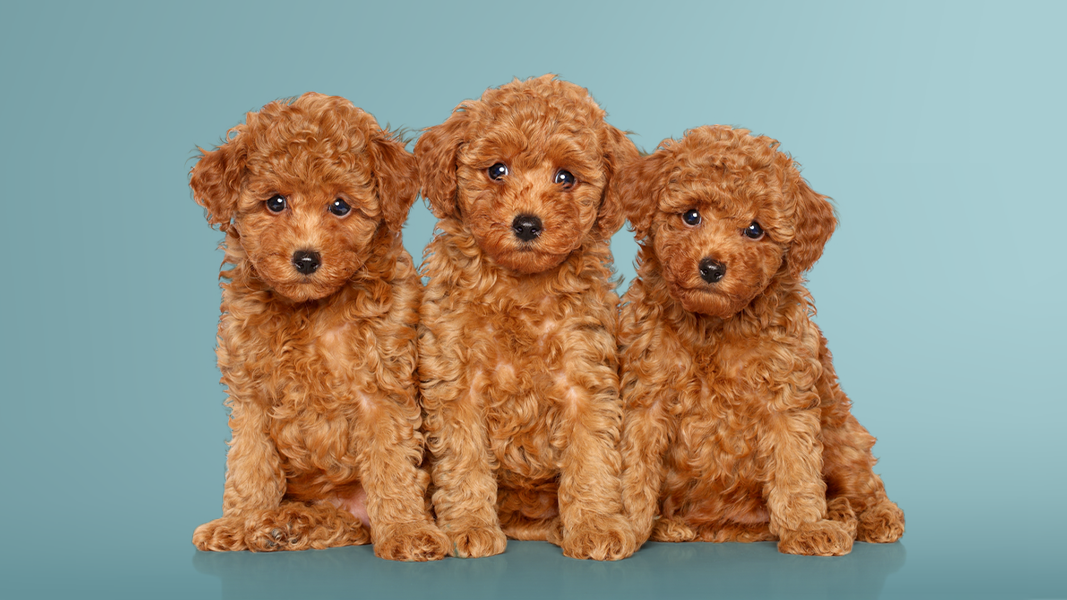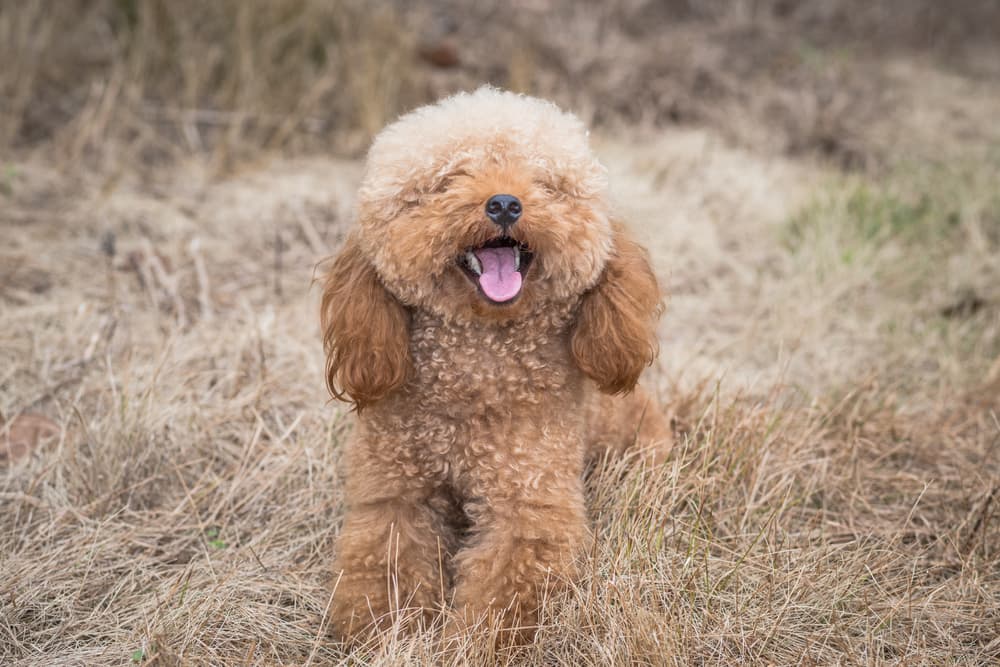Elvis Presley owned more than one Poodle throughout the years. Whilst stationed in Germany as an American GI he had a Poodle companion who went by the name of Champagne. He was also known to gift the breed to those he loved. Priscilla received a Toy called Honey and he gifted his beloved mum Gladys Duke, another Toy who was named in honor of John Wayne.

Toy Poodle
What makes Toy Poodles so popular is their incredible intelligence. Generally regarded as one of the smartest dog breeds, poodles are highly trainable, extremely eager to please people, and love being the center of attention.
Country of Origin
Germany
Breed Group
Non-Sporting Group
Height
Male 9-10 In
Female 8-9 In
Weight
Male 5-7 Ib
Female 4-6 Ib
Life Span
10-18 years
In a Nutshell
Toy Poodles have an aristocratic reputation, but they bring intelligence and affection to even a humble home. They are famously known for their proven excellence in shows. Their curly and voluminous coat in combination with a confident strut always seems to steal the show. To boot, the breed is intelligent, athletic, and loyal, making it a great choice for single owners and families alike.
Life With a Toy Poodle
Looks & Personality

Standing at 10 inches tall and weighing just around 5 pounds, tiny Toy Poodles still carry themselves proudly and elegantly. These friendly, fun-loving, and outgoing dogs consider themselves an essential and loyal part of the family. However, they don’t want to be the baby. They are very devoted and eager to please. They’ll get disgruntled if they feel left out of activities or are left alone for too long. They may punish you for leaving them alone by acting out with destructive behaviors.
Toy Poodles are brainy dogs and early training is recommended for mental stimulation. It’s a great way to show off their talents at hide-and-seek and more complex games. Your pooch will hate boredom and get vocal to let you know. Remember, however, that their bark is much worse than their bite.
The Toy Poodle’s small size means they can be happy in small spaces without overwhelming amounts of strenuous activity. Because of that, Toy Poodles make great pets for apartment dwellers and dog lovers without the ability to commit to an exceedingly high-energy breed. In short, a Toy Poodle is not a toy. Far from just an ornamental pet, they’re energetic playmates and affectionate members of the family.
A tip from a vet
A tip from a trainer
What about your Toy Poodle?
Did You Know

The reason behind their flamboyant-looking hairdos? Poodles are great swimmers and were initially bred as water-retrieving dogs. Their coats quickly got water-logged, however, and pulled them down. The solution was to cut off most of their hair while leaving some around their vital organs to keep them warm and around vulnerable joints to protect them from injury.

Due to their intelligence, biddable natures, athleticism and looks the Poodle was frequently employed in circuses, particularly in France.

Toy Poodles don’t shed, making them a great pet for people with allergies.
In The News
Famous Toy Poodle Owners
The History Behind the Breed
The standard Poodle is the national dog of France, which is why many call them a “French poodle.” Poodles were, however, first developed and bred in Germany as duck hunters. Today in France, the Poodle is known as the caniche, “duck dog.” The word “poodle” derives from the German pudelin, which refers to splashing in water. The Toy Poodle was created for those captivated by the original Poodle’s personality but looking for a smaller dog. Furthermore, because they are highly intelligent, easy-to-train, and even comical, Poodles were popular performing dogs. Throughout the 15th and 16th centuries, Poodles were solely owned by the rich and famous and featured in paintings by artists Rembrandt and Albrecht Dürer. Toy Poodles rose to greater fame by the late 18th century, appearing in artwork and in the courts of French nobility.
If a Toy Poodle Could Talk…
A Quick Anatomy Lesson


Toy Poodles are a generally healthy breed. However, they are susceptible to certain health conditions like patellar luxation, von Willebrand’s disease, epilepsy, and Legg-Calve-Perthes disease. They are also susceptible to health issues that affect all small breeds, such as dental problems, tracheal collapse, and hypoglycemia. Because their coat is so light on shedding, their hair curls in on itself and mats, which can lead to skin infections.
Common Health Problems
What about your Toy Poodle?
















